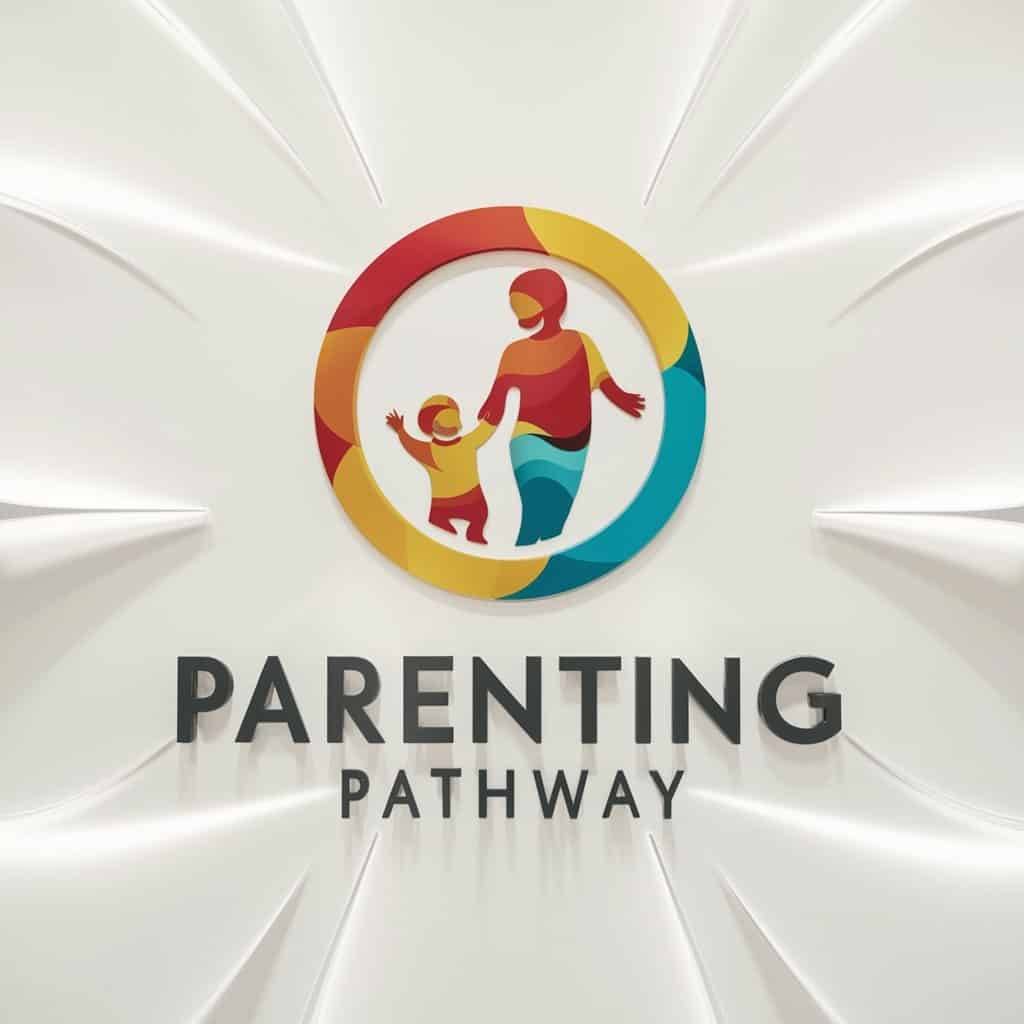Are Child Psychology And Child Development The Same Field?
Back to Blog
Distinguishing Child Psychology from Child Development
When exploring the intricate world of understanding children’s growth and mental processes, many people often confuse child psychology and child development as identical fields. While closely related, these disciplines have distinct characteristics and approaches that set them apart.
Child psychology focuses primarily on mental and emotional processes, examining how children think, feel, and interact with their environment. Psychologists in this field delve deep into understanding cognitive functioning, emotional responses, behavioral patterns, and psychological challenges that children might experience.
Core Differences in Professional Focus
Professionals in child psychology typically concentrate on mental health, emotional well-being, and psychological assessment. They aim to diagnose and treat potential psychological disorders, analyze behavioral patterns, and provide therapeutic interventions. Their work often involves:
- Assessing emotional and mental health challenges
- Conducting psychological evaluations
- Developing treatment strategies for mental health concerns
- Supporting children through emotional difficulties
Understanding Child Development Perspectives
Child development, conversely, adopts a broader perspective focusing on physical, cognitive, social, and emotional growth throughout childhood. Developmental specialists track children’s progression across multiple domains, studying how children acquire skills, learn, and mature from infancy through adolescence.
Key Areas of Investigation
Developmental researchers examine comprehensive growth trajectories, including:
- Physical growth and motor skill development
- Cognitive skill acquisition
- Language development milestones
- Social interaction patterns
- Emotional regulation capabilities
Methodological Approaches
While both disciplines utilize scientific research methods, their approaches differ significantly. Child psychologists often employ clinical assessments, psychological testing, and therapeutic techniques. Child development professionals typically rely on observational studies, longitudinal research, and developmental milestone tracking.
Professional Training and Educational Requirements
Professionals in these fields undergo distinct educational pathways. Child psychologists usually complete advanced degrees in psychology, requiring doctoral-level training and clinical certification. Child development specialists might have backgrounds in psychology, education, sociology, or related social science disciplines.
Overlapping Domains and Collaborative Potential
Despite their differences, child psychology and child development are not mutually exclusive. These fields frequently intersect, providing complementary insights into children’s growth and functioning. Many professionals collaborate to develop holistic understandings of childhood experiences.
Practical Applications
Understanding the nuanced differences between these disciplines helps parents, educators, and healthcare professionals provide more targeted support. By recognizing whether a child’s challenges stem from psychological issues or developmental variations, interventions can be more precisely tailored.
Emerging Research and Future Perspectives
Contemporary research increasingly recognizes the interconnected nature of psychological and developmental processes. Interdisciplinary approaches are gaining prominence, encouraging more comprehensive strategies for supporting children’s overall well-being.
Professionals in both fields continue to explore complex interactions between mental health, cognitive functioning, and developmental trajectories. Technological advancements and sophisticated research methodologies are expanding our understanding of childhood growth and potential interventions.
Significance of Specialized Knowledge
Whether addressing psychological challenges or tracking developmental milestones, specialized professionals play crucial roles in understanding and supporting children’s complex journeys. Their dedicated research and clinical work contribute significantly to comprehensive child-centered approaches.
Core Disciplinary Foundations and Methodological Approaches
Understanding the core disciplinary foundations and methodological approaches in child psychology and child development reveals the intricate landscape of scientific investigation into human growth and cognitive processes. These fields share complex interconnections while maintaining distinct research paradigms that explore how children learn, grow, and interact with their environment.
Disciplinary foundations in these domains draw from multiple scientific traditions, including neuroscience, sociology, anthropology, and biological sciences. Researchers employ sophisticated methodological frameworks that enable comprehensive understanding of child behavior, cognitive development, emotional regulation, and social interactions.
Theoretical Frameworks and Research Strategies
Researchers utilize diverse approaches to comprehend child development and psychological processes. Observational methods, longitudinal studies, experimental designs, and qualitative research techniques provide nuanced insights into developmental trajectories. These methodological strategies allow scientists to track changes, identify patterns, and understand underlying mechanisms of growth and psychological functioning.
Quantitative Research Techniques
- Standardized psychological assessments
- Experimental research designs
- Neuroimaging studies
- Statistical analysis of developmental milestones
- Comparative research across different age groups
Qualitative Investigation Methods
- Ethnographic observations
- Narrative interviews
- Case study analyses
- Participant observation techniques
- Contextual behavior documentation
Interdisciplinary collaboration remains crucial in advancing understanding of child development. Researchers from psychology, neuroscience, education, and sociology converge to create comprehensive frameworks that explain complex developmental processes.
Emerging Research Paradigms
Contemporary research increasingly emphasizes integrative approaches that consider biological, psychological, and social dimensions simultaneously. This holistic perspective acknowledges the multifaceted nature of child development, recognizing that individual growth results from intricate interactions between genetic predispositions and environmental influences.
Technological advancements have revolutionized research methodologies, enabling more precise measurement and analysis of developmental processes. Advanced neuroimaging techniques, computational modeling, and sophisticated data collection tools provide unprecedented insights into cognitive and psychological mechanisms.
Key Research Focus Areas
- Brain plasticity during childhood
- Emotional intelligence development
- Social learning mechanisms
- Cognitive skill acquisition
- Psychological resilience factors
Ethical considerations play a paramount role in research design. Stringent protocols protect child participants, ensuring minimal risk and maximum benefit from scientific investigations. Institutional review boards carefully evaluate research proposals to maintain rigorous ethical standards.
Interdisciplinary Knowledge Integration
The convergence of multiple disciplinary perspectives enables a more nuanced understanding of child development. By integrating insights from neuroscience, psychology, sociology, and anthropology, researchers can develop comprehensive models that explain complex developmental processes.
Data-driven methodologies increasingly rely on advanced statistical techniques and machine learning algorithms to analyze extensive developmental datasets. These sophisticated approaches allow researchers to identify subtle patterns and predict potential developmental trajectories with greater accuracy.
Ongoing research continues to challenge and refine existing theoretical frameworks, demonstrating the dynamic nature of scientific understanding. As new technologies emerge and research methodologies become more sophisticated, our comprehension of child development and psychological processes will undoubtedly expand, offering deeper insights into human growth and potential.
Professional Training and Career Pathways in Related Fields
Educational Foundations for Child Psychology and Development Professionals
Aspiring professionals in child psychology and development have multiple exciting career pathways that require specialized training and unique skill sets. These fields demand comprehensive educational backgrounds that blend theoretical knowledge with practical experience.
Academic Preparation Strategies
Most career tracks begin with a strong undergraduate degree in psychology, human development, counseling, or related behavioral sciences. Students typically pursue bachelor’s degrees that provide foundational understanding of child behavior, developmental stages, and psychological principles.
Advanced degree options include:
• Master’s programs in Child Psychology
• Doctoral degrees (Ph.D. or Psy.D.)
• Specialized clinical training certifications
• Research-focused graduate programs
Specialized Professional Certifications
Professionals can enhance their credentials through targeted certifications from recognized institutions. The American Board of Professional Psychology offers specialized certification in pediatric and clinical child psychology, which demonstrates advanced expertise and commitment to the field.
Career Pathway Options
Clinical practitioners may choose diverse professional routes:
• School psychological counseling
• Private therapy practices
• Research institutions
• Hospital and healthcare settings
• Educational consulting
• Early childhood intervention programs
Skills and Competency Development
Successful professionals in these fields must cultivate specific skill sets beyond academic qualifications:
• Exceptional communication abilities
• Deep empathy and emotional intelligence
• Advanced observational skills
• Research and analytical capabilities
• Cultural sensitivity
• Understanding of developmental neuroscience
Professional Training Requirements
Comprehensive professional training involves multiple developmental stages:
- Undergraduate foundational learning
- Graduate-level specialized studies
- Clinical internship experiences
- Supervised professional practice
- Ongoing professional development
Licensing requirements vary by state and specific professional role, necessitating careful navigation of regulatory frameworks. Most clinical positions require:
• Minimum graduate-level education
• Supervised clinical hours
• Professional licensing examinations
• Background checks
• Continuing education credits
Research and Academic Career Tracks
Professionals interested in research and academic contributions can pursue additional specialized pathways:
• University research positions
• Child development research centers
• Academic teaching roles
• Developmental psychology laboratories
• Policy development and analysis
Emerging Professional Opportunities
Contemporary child psychology and development fields continue expanding with technological advancements and evolving understanding of human behavioral sciences. Emerging opportunities include:
• Telehealth psychological services
• Digital behavior intervention programs
• Neurodevelopmental research
• Cross-cultural psychological studies
• Technology-assisted therapeutic interventions
Financial and Professional Growth
Career progression in these fields offers competitive compensation and significant personal satisfaction. According to recent labor statistics, professionals can expect:
• Median annual salaries ranging from $60,000 to $120,000
• Growth potential in specialized practice areas
• Opportunities for private practice
• Potential for international consulting
Professional Networking and Resources
Successful career development requires strategic networking and continuous learning. Recommended professional associations include:
• American Psychological Association
• Society for Research in Child Development
• International Association of Child and Adolescent Mental Health
• National Association of School Psychologists
Professionals must remain adaptable, embrace interdisciplinary approaches, and maintain curiosity about emerging research and intervention strategies. The dynamic nature of child psychology and development ensures continuous learning and professional evolution.
Interdisciplinary Intersections and Research Collaborations
In the dynamic landscape of scientific research, the convergence of diverse disciplines has emerged as a powerful catalyst for innovation and breakthrough discoveries. Modern researchers increasingly recognize that complex challenges cannot be solved through isolated academic silos but require collaborative, multidisciplinary approaches.
Bridging Knowledge Domains
Contemporary scientific exploration thrives on breaking traditional boundaries between academic fields. Researchers from different domains are discovering unprecedented opportunities by integrating their expertise, methodologies, and perspectives. This collaborative approach enables more comprehensive understanding of intricate problems that transcend single disciplinary frameworks.
Strategic Collaboration Mechanisms
Successful interdisciplinary collaborations typically involve several strategic mechanisms:
- Establishing shared research platforms
- Creating cross-departmental research teams
- Developing integrated funding models
- Implementing joint academic programs
- Promoting flexible research infrastructure
Technological Enablers of Collaborative Research
Advanced digital technologies have significantly transformed interdisciplinary research capabilities. Cloud computing, artificial intelligence, and sophisticated data analytics platforms now allow researchers from geographically dispersed locations to collaborate seamlessly. These technological innovations facilitate real-time information sharing, joint data analysis, and synchronized research methodologies.
Key Technological Integration Points
The technological landscape supporting interdisciplinary research includes:
- Collaborative digital workspaces
- Advanced simulation environments
- Machine learning algorithms for complex data interpretation
- Blockchain-enabled research verification systems
- Global research networking platforms
Transformative Research Outcomes
Interdisciplinary collaborations have yielded remarkable achievements across various domains. Medical research, for instance, has witnessed groundbreaking developments through interactions between biotechnology, computer science, and clinical medicine. Environmental science similarly benefits from integrating perspectives from ecology, economics, and social sciences.
Emerging Collaborative Research Domains
Several frontier research areas demonstrate exceptional potential for interdisciplinary approaches:
- Quantum computing and material sciences
- Neurotechnology and cognitive psychology
- Climate change mitigation strategies
- Sustainable urban development
- Personalized medicine frameworks
Institutional Support Frameworks
Academic institutions play a crucial role in fostering interdisciplinary research culture. Progressive universities are redesigning organizational structures, creating dedicated interdisciplinary research centers, and developing flexible curriculum models that encourage cross-disciplinary learning and collaboration.
The most successful research institutions recognize that true innovation emerges from intellectual diversity and the willingness to challenge traditional disciplinary boundaries. By creating supportive ecosystems that reward collaborative thinking, these organizations are driving transformative scientific advancements.
Research Collaboration Incentive Structures
Effective institutional support involves:
- Competitive interdisciplinary research grants
- Recognition and career advancement opportunities
- Flexible research time allocation
- International research exchange programs
- Multidisciplinary conference and publication platforms
As global challenges become increasingly complex, interdisciplinary research collaborations will continue to play a pivotal role in generating innovative solutions. The future of scientific exploration lies not in specialized isolation but in the dynamic interaction of diverse intellectual perspectives.
Researchers, institutions, and funding bodies must continue investing in creating robust, flexible, and supportive environments that nurture cross-disciplinary dialogue and collaborative problem-solving approaches. By embracing this holistic research paradigm, we can unlock unprecedented potential for scientific discovery and societal progress.
Practical Applications in Clinical and Educational Settings
Understanding the nuanced relationship between child psychology and child development reveals intricate ways professionals apply their expertise in clinical and educational environments. These interconnected disciplines collaborate closely to support children’s holistic growth and address complex developmental challenges.
Assessment and Intervention Strategies
Clinical settings frequently utilize comprehensive assessment techniques that integrate psychological evaluation with developmental milestone tracking. Professionals might employ standardized testing, behavioral observations, and interactive assessments to understand a child’s cognitive, emotional, and social progression.
Targeted Intervention Approaches
- Early screening for potential developmental delays
- Individualized educational planning
- Behavioral modification strategies
- Emotional regulation skill development
Collaborative Professional Interactions
Psychologists and developmental specialists frequently collaborate to create comprehensive support systems. School counselors, pediatric therapists, and educational professionals work together, sharing insights to develop holistic intervention plans that address multiple aspects of a child’s growth.
Interdisciplinary Assessment Methods
Professionals integrate multiple perspectives when evaluating children’s developmental trajectories. This might include neurological assessments, psychological evaluations, academic performance reviews, and family history analyses to create nuanced understanding of individual developmental patterns.
Educational Environment Applications
Schools increasingly recognize the importance of understanding individual developmental differences. Educators implement specialized learning strategies that accommodate diverse cognitive and emotional developmental stages, ensuring personalized educational experiences.
Learning Support Mechanisms
- Adaptive curriculum design
- Individualized learning plans
- Social-emotional learning integration
- Differentiated instructional approaches
Technology-Enhanced Assessment Tools
Modern clinical and educational settings leverage advanced technological tools to track and support children’s developmental progress. Digital platforms enable more precise monitoring of cognitive skills, emotional responses, and social interaction patterns.
Technological Intervention Strategies
Innovative digital assessments provide real-time insights into children’s developmental characteristics. Adaptive learning platforms, interactive psychological evaluation tools, and predictive analytics help professionals create targeted intervention strategies.
Neurological and Psychological Integration
Contemporary approaches recognize the intricate connections between neurological development and psychological functioning. Professionals analyze brain development patterns alongside emotional and cognitive progression to develop comprehensive understanding of individual growth trajectories.
Holistic Development Perspective
Integrated assessment models consider multiple developmental domains simultaneously. This approach allows for more nuanced understanding of how cognitive, emotional, and social factors interact throughout childhood.
Family and Community Engagement
Effective clinical and educational interventions extend beyond individual assessments. Professionals actively engage families and community resources to create supportive ecosystems that nurture children’s comprehensive developmental needs.
Supportive Ecosystem Development
- Parent education programs
- Community resource coordination
- Collaborative intervention planning
- Ongoing communication strategies
By integrating psychological insights with developmental understanding, professionals create powerful frameworks for supporting children’s growth. These comprehensive approaches ensure that individual developmental differences are recognized, respected, and strategically addressed across various professional contexts.
Key Takeaway:
Key Takeaway: Understanding the Nuanced Relationship Between Child Psychology and Child Development
Child psychology and child development, while closely related, are distinct yet interconnected fields that play crucial roles in understanding how children grow, learn, and interact with the world around them. This comprehensive exploration reveals that while these disciplines share common goals of supporting children’s well-being, they approach this mission through unique lenses and methodological frameworks.
At the core of their distinction lies the fundamental approach to understanding child growth. Child psychology primarily focuses on mental processes, emotional experiences, and psychological functioning of children. It delves deep into understanding behavioral patterns, cognitive development, emotional regulation, and psychological challenges that children may encounter. In contrast, child development takes a broader, more holistic view, examining physical, cognitive, social, and emotional changes that occur from infancy through adolescence.
The professional training and career pathways in these fields demonstrate their complementary yet specialized nature. Child psychologists typically pursue clinical training, focusing on mental health interventions, psychological assessments, and therapeutic approaches. Child development professionals, on the other hand, often work in educational settings, research institutions, and developmental support roles, analyzing broader patterns of growth and environmental influences.
Interdisciplinary collaboration emerges as a critical strength in both fields. Researchers and practitioners increasingly recognize the value of integrated approaches that combine psychological insights with developmental perspectives. This collaborative model allows for more comprehensive understanding of children’s experiences, breaking down traditional disciplinary boundaries.
Practical applications highlight the real-world significance of these fields. In clinical settings, child psychologists provide targeted interventions for mental health challenges, while child development experts design educational programs and support systems that optimize children’s overall growth potential. These approaches converge to create holistic support mechanisms that address children’s complex needs.
The most important takeaway is that while child psychology and child development are distinct disciplines, they are fundamentally interconnected. They represent complementary approaches to understanding children’s growth, each offering unique insights that, when combined, provide a more comprehensive view of childhood development. Professionals in these fields share a common mission: supporting children’s optimal growth, learning, and emotional well-being.
Students, researchers, and practitioners should view these disciplines not as competing domains, but as collaborative approaches that together offer a more nuanced, comprehensive understanding of childhood experiences and developmental trajectories.
Conclusion
While child psychology and child development may seem closely intertwined, they represent distinct yet complementary disciplines that ultimately share a fundamental goal: understanding and supporting children’s holistic growth and well-being. Professionals in these fields bring unique perspectives and specialized skills that contribute to a comprehensive understanding of childhood experiences, challenges, and potential.
The nuanced differences between child psychology and child development highlight the importance of interdisciplinary collaboration. Psychologists focus intensely on mental and emotional processes, while developmental specialists track physical, cognitive, and social progression. Together, they create a robust framework for comprehending the intricate journey of childhood.
Students and professionals interested in these domains should recognize that both fields offer meaningful career pathways with significant societal impact. Whether working in clinical settings, educational institutions, research laboratories, or community programs, these experts play crucial roles in nurturing children’s potential and addressing developmental challenges.
Emerging research continues to blur traditional disciplinary boundaries, encouraging more integrated approaches to understanding child growth. Technological advancements and sophisticated research methodologies are enabling deeper insights into childhood development, mental health, and learning processes.
Ultimately, the shared commitment to children’s well-being transcends narrow disciplinary definitions. By valuing both psychological and developmental perspectives, we can create more holistic, compassionate support systems that empower children to thrive. Continued cross-disciplinary dialogue and research will be essential in advancing our collective understanding of childhood complexity and potential.




Leave a Reply